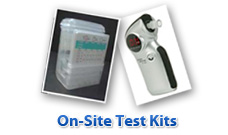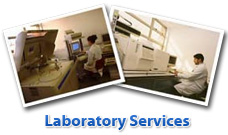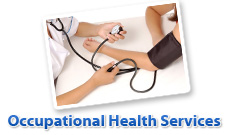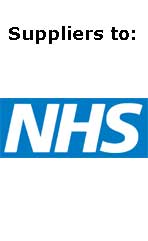Employee Substance Abuse Tests
Spurred by a desire to provide well-being, safety and health of members of staff, company drugs policies have eventually become increasingly commonplace within the UK. Be that as it may, there still persist a number of misconceptions surrounding the process, which could cause doubt among the employees subject to testing.
Employee Substance Abuse Tests – Where is the danger?
Most people suppose that the influence of misused drugs throughout the work environment is a minor matter. Everybody has caught a glimpse of Christmas drink-driving television advertisements and as a result, recognise that drink-driving and drug-driving is illegal and dangerous, so can’t we rely on most people’s common sense? Sad to say, more or less half of all roadside and industrial fatalities within England and Scotland relate to drinking, illicit drugs, or a combination of both. Latest available data prove that about 70% of illegal drug abusers are engaged in full-time work, meaning that the typical illegal drug user is, essentially, the typical staff member. Up to date Home Office research place the number of 16 to 29-year-olds who abused illegal substances within the previous 12 months at in excess of 50%. In light of this, this is not someone else’s problem, because it impacts almost every company. While the intermittent use of illegal substances may not by default point to risk-taking and irresponsibility within the place of work, it does significantly increase the possibility of workplace accidents and incidents, attendance and punctuality issues, a drop in productivity, damages to machinery and wasted materials, legal issues and a raised turnover of staff.
Employee Substance Abuse Tests – What do you suggest? Isn’t workplace alcohol and drug testing operationally disruptive?
Numerous companies only administer the screening process in response to an accident in the workplace, a near miss or incident, or whenever they find reasonable grounds for concern or suspect that a colleague is unfit or unsafe to be operating machinery. As a result of the substantial assortment of prospective risks within heavy industrial workplaces, numerous businesses see it as being wholly logical to carry out workplace drug and alcohol screening on these occasions, in order to avoid them from happening again.
Of course, random drug testing takes on-site screening to the next level, where a certain percentage of the personnel is randomly selected to produce a sample. This might sound intrusive, however, it is actually very customary for as few as 5% of the personnel to be tested up to once in every 12 month period. This means that only one in 20 staff being drug screened, in other words, as an individual, your chance of being subject to a test should be just once each 20 years. As amazing as it sounds, this style of marginal screening has already been shown to lower rates of failure from as much as 46% down to as low as only 2% in as little as only a handful of months. This just shows that the run of the mill drug misuser within the average company isn’t hopelessly addicted, but is merely making lifestyle choices which might be reshaped towards a more positive end result.
Employee Substance Abuse Tests. Is this considered a violation of the person’s civil Liberties?
While certain individuals within the business could be initially resistant to the possibility of on-site drug testing, many comprehend that this is primarily carried out to establish the safety of everyone throughout the company. Provided the amount of on-site drug screening is proportionate to the risks within the company and does not deliberately impact upon personnel time outside of work, it shouldn’t pose a threat to individuals’ human rights. Around the USA, around 98% of the richest 1000 corporations drug and alcohol test their staff without any issues.
Is there really any danger while experimenting with substances away from work?
Lots of illegal substances have recently established a less dangerous image as a result of their frequent mentions throughout the nation’s newspapers and magazines. Undoubtedly, phrases including “recreational cocaine use” may cause a great amount of harm due to it downplaying the risks to young people. For many young people, snorting cocaine is more habit forming than heroin and, as a result cannot be abused on a recreational basis without major threat of becoming an addict. Dependency aside, the purity of cocaine has reduced from an average forty five percent cocaine content in 2004 to a low of just 25% purity in 2010 (with cocaine purity at an all-time low of 9 percent being reported currently). Even more worryingly, the powders that the dealers use to increase the volume of the cocaine powder can be anything from local anaesthetics, carcinogenic chemicals, cat worming powders, all the way through to to insecticides. The unfortunate fact is you should certainly never rely upon a drug dealer.
Even substances formerly regarded as soft drugs often still carry risks. Presently in England and Scotland, a staggering 92% of patients accepted for therapy for mental illness are heavy cannabis users. With this in mind, workplace drug and alcohol screening undoubtedly possesses the ability to attack wider antisocial and health related issues as it eventually is more widely accepted.
To learn more about drug and alcohol testing and also home drug screening kits, browse through www.drug-aware.com
Information on the author: Christopher Evans is the Technical Director of Drug-Aware Ltd, a supplier of Employee Substance Abuse Tests, alcohol and drugs testing kits, laboratory services and also alcohol and drug awareness training sessions. He has personally trained literally thousands of delegates across hundreds of organisations, HM Prison Service, the British police and hospitals throughout the country.








